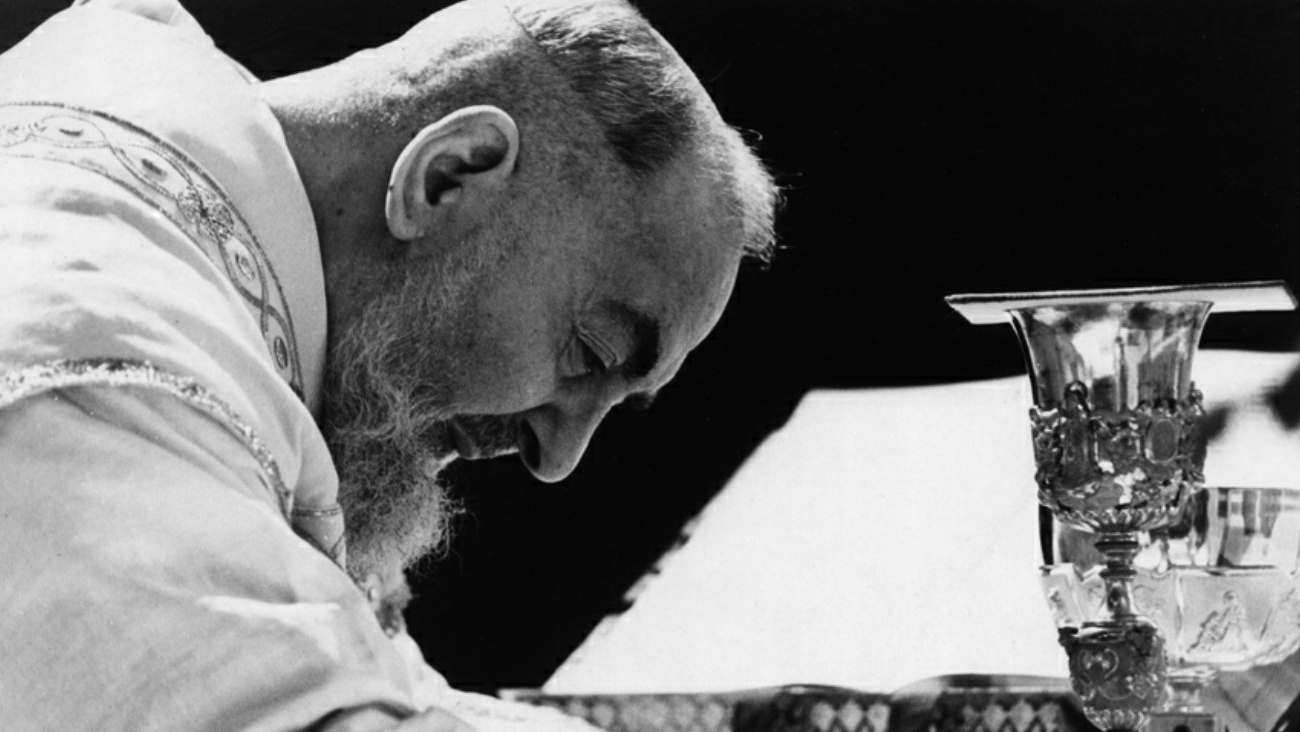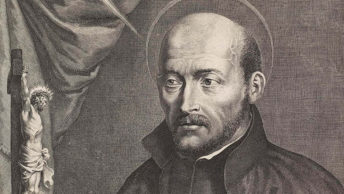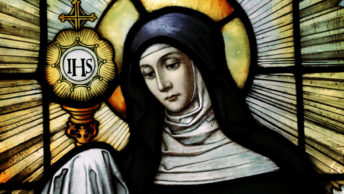The Feast of All Saints should remove any trace of dejection and fill us with hope, appreciation of God’s infinite mercy and sincere, abiding gratitude for the work of the Holy Spirit in our minds and hearts. Right there we have all the spiritual components of a serene and fruitful life on earth with the added dimension of awaiting with expectation and endurance our glorification in heaven.
This ideal scenario filled with hope and expectation is rooted in the ordinariness of daily life which is the arena where we realize our sanctification by docile and humble obedience to the Holy Spirit. The key word here is “ordinariness.” This feast has been set aside by the Church to include all those who are saints with the lower case “s.” The Saints whose feast days are in the liturgical calendar are instinctively lifted by us way past the level that we would consider reachable with our meager spiritual efforts. Instead, the Church is trying to convey to us that the Saints with the capital “S” became such by working with the Holy Spirit with a humble and docile inner disposition, day in and day out, doing the ordinary things of daily life. Actually, were we to attempt to imitate the Big Saints by doing big and sensational things, we would feed our pride with spiritually disastrous consequences.
A second, simple consideration: we ought to ask ourselves how many saints (with the lower case “s”) we have known while they were with us on this earth and how they have contributed to our profession of faith and sound Christian living. We should start, of course, with the deceased members of our family who died in the Lord and, then, move to those who used to be members of our parish, of our town, former coworkers, friends, acquaintances, and so on. If we add the number that we each come up with; multiply it by the millennia of human history; we can see how this great multitude is made up of such an enormous number that no one can count.
At this point we might say to ourselves: “this way of reasoning sounds too good to be true.”
Well, let us keep in mind a few basic truths:
- How can anyone, or anything, stand in the way of our loving Father who wants all his children to be forever in his heavenly home? [God] who wills everyone to be saved and to come to knowledge of the truth. (1 Tim 2:4)
- He has available countless ways for reaching his wayward children. Thus the LORD passed before him and cried out, “The LORD, the LORD, a merciful and gracious God, slow to anger and rich in kindness and fidelity. (Ex 34:6)
- It should be noted that it is God himself who attributes mercy as his first identifying trait. For we do not have a high priest who is unable to sympathize with our weaknesses, but one who has similarly been tested in every way, yet without sin. (Heb 4:15)
- We should never overlook or forget the most comforting fact that our being one with Christ makes God constantly aware of the miseries, hurts, setbacks and mistakes that are inherent in our humanity.
- And, finally, as a clincher, especially whenever we face humanly irresolvable, extremely frustrating, impossible situations, we should picture Jesus, fully aware of our bewilderment, whispering to us. For human beings this is impossible, but for God all things are possible. (Mt 19:26)
However, God’s salvific plan, infinite mercy, knowledge of our miseries, and omnipotence notwithstanding, we must remember that he will always respect our freedom. For this reason, for the respect that God has of our freedom, we should be engaged in carrying out his will in the ordinariness of daily life by remaining focused on the hidden challenges in our path. Some of these challenges are such that they would frustrate our efforts and set us down the wrong path if we were to rely on our human skills and resources alone.
To become saints with the lower case “s,” let alone Saints with the capital “S” we must rely constantly on the Holy Spirit. Notice how the Church invokes the power of the Holy Spirit whenever she needs something to be made holy. Hence, to become saints we must welcome the work of the Holy Spirit in our minds and hearts and cooperate fully and joyfully with it. The Holy Spirit will assist us in the tug-of-war between what the world proposes and suggests and what the Gospel proposes and suggests.
The two propositions are mutually exclusive. The two paths go in opposite directions. This becomes quite evident as soon as we adopt the Beatitudes as our guide and frame of reference.
- In the world in which we live, the poor in spirit are trampled upon.
- Those who mourn are seen as a bother and they make others uncomfortable.
- The meek are walked all over and taken advantage of.
- People who hunger and thirst for justice get cheated and railroaded—or ignored.
- The merciful are perceived as weak; while those with a clean heart are considered idealists and daydreamers and, thus, easily dismissed.
- The peace-makers are the first to pay with their own life…
These are all big challenges that can pull us away from our diligent cooperation with the Holy Spirit as we undertake the task of becoming saints through the ordinariness of daily life.
A suggestion that has been pushed by Mother Church from the very beginning of her history is the one of counting on the intercession of the Saints with the capital “S” because they are in heaven for sure. We can pick our favorite one(s) and ask them to assist us. Or we can go on the Internet and find out the patron Saint of the Beatitude with which we have the most trouble.
One way or the other, this feast inspires us to be successful in this holy work which is done “all in the family,” God’s Family. Some examples include: Poverty of spirit (St. Lawrence); Mourning (St. Monica); Meekness (St. Francis de Sales); Justice (St. Martin de Porres); Mercy and forgiveness (St. Maria Goretti); and Peacemaking (St. Barnabas).
Hence, the question posed to us is this: Are we ready to be enrolled among the saints?








